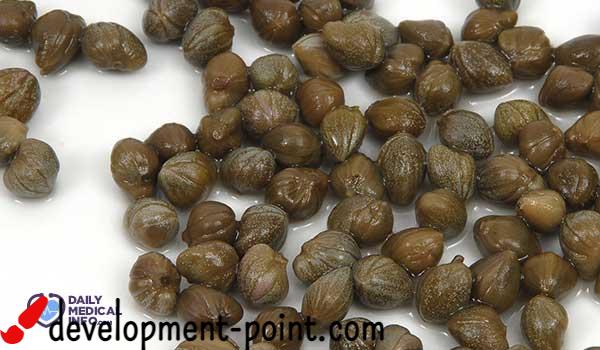Health benefits of mash: and its possible harm
Mung bean, also known as mung beans, is a plant in the legume family. It is considered native to India, but was later cultivated in China, and scattered parts of Southeast Asia.
Mash has a sweet taste, and it is rich in many benefits and nutrients needed to protect the body from diseases. We will learn about the benefits of mung bean, its nutritional value, and how to prepare it in the following article.
The nutritional value of mung bean
Mash beans are rich in important nutritional sources for the human body, as each 200 grams of them contain:
- 200 calories.
- one gram of fat.
- 14 grams of protein.
- 39 grams of carbohydrates.
- 16 grams of fiber.
- 4 grams of sodium.
- 4 grams of sugar.
The same amount of mung bean contains many important minerals such as:
- Folic acid.
- manganese.
- magnesium.
- Vitamin B1, B2, B3, B5, B6 group.
- phosphorous.
- Iron.
- copper.
- potassium.
- zinc.
Health benefits of mash
Mung bean contains amazing benefits for the health of the body, including:
1. Fighting free radicals
Mung beans are a great source of antioxidants, which play a role in protecting the body from chronic diseases. Such as heart disease, diabetes, and some types of cancer.
Adding sources rich in antioxidants, such as mung bean, to your diet protects your body from the potential damage of free radical compounds.
Mash beans contain important antioxidants such as vitoxin and isovitxin, which have anti-inflammatory properties, and their consumption helps protect the skin from the consequences of sunstroke and high body temperature.
Mung bean has the ability to retain body moisture as long as possible.
2. Lower cholesterol
The accumulation of cholesterol, especially harmful cholesterol, inside the arteries leads to serious heart diseases.
Some recent studies have shown that eating mung bean contributes to lowering harmful cholesterol in the blood.
3. Lowering blood pressure
Because mung bean is rich in important minerals such as potassium, magnesium, and fiber. Together, these elements protect the body from the risk of developing high blood pressure. The proteins in mung bean also contribute to inhibiting enzymes that raise blood pressure in a natural way.
4. The benefits of mash for the digestive system
Mash beans are rich in a soluble fiber known as “pectin”, and these fibers have benefits in maintaining the prevention of indigestion, by accelerating the movement of food inside the intestines. In addition to containing carbohydrates, which in turn contribute to facilitating digestion.
Studies also indicate the ability of mung bean to strengthen colon cells and prevent the risk of colon cancer.
5. Its benefits for diabetics
Mung bean has many properties that help the body in maintaining a low blood sugar level. Because it is a good source of protein and fiber, which in turn contribute to slowing down the release of sugar into the blood, as well as helping it to enhance insulin action more effectively.
6. Helps lose weight
The fibers and proteins present in mung bean help reduce appetite and enhance the feeling of satiety. They are the first steps to losing weight.
7. Prevention of stomach ulcers
The antioxidants present in mung bean fight fungi and bacteria that cause stomach ulcers.
8. Promote a healthy immune system
Mung bean contains important food sources that act as anti-inflammatory and anti-microbial. These antibacterial properties help boost immunity in fighting:
- harmful bacteria.
- viruses.
- Colds.
- Skin rash.
9. The benefits of mung bean for bones
Mash beans are a good source of an important mineral such as magnesium, which in turn maintains and strengthens bone health.
Benefits of mung bean for women
Its benefits for women include:
Benefits of mash for the uterus
Because mung bean contains important vitamins and nutrients such as vitamin B group, folic acid, and magnesium. It helps reduce contractions and uterine spasms associated with menstruation.
Benefits of mash for pregnant women
Mung bean contains a high percentage of fiber, protein and important minerals such as iron. Which pregnant women need in their diet more than anyone else.
Mash beans also contain folic acid, which is an important element for pregnant women, as it helps promote fetal growth.
Is mash useful for fattening?
As we mentioned, every 200 grams of mung bean contains approximately 200 grams of calories. Therefore, when you consume a larger amount of mung bean than the normal daily consumption, it leads to an increase in the percentage of calories in your body, which helps in gaining weight.
Mash damage
Mash beans, like other types of legumes, overeating them may lead to some side effects because they contain a large proportion of fiber, and among these risks are the following:
- diarrhea.
- bloating
- Nausea.
- dizziness;
It is preferable to eat small amounts of legumes in your daily diet to avoid their side effects. And you should be aware that some people may be exposed to an allergic reaction to some legumes, so if you have been exposed to allergy when eating any type of legume previously, be careful when adding mash to your diet.

